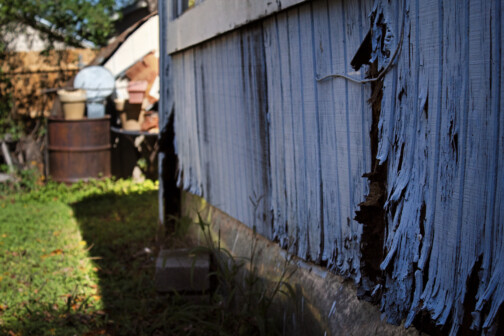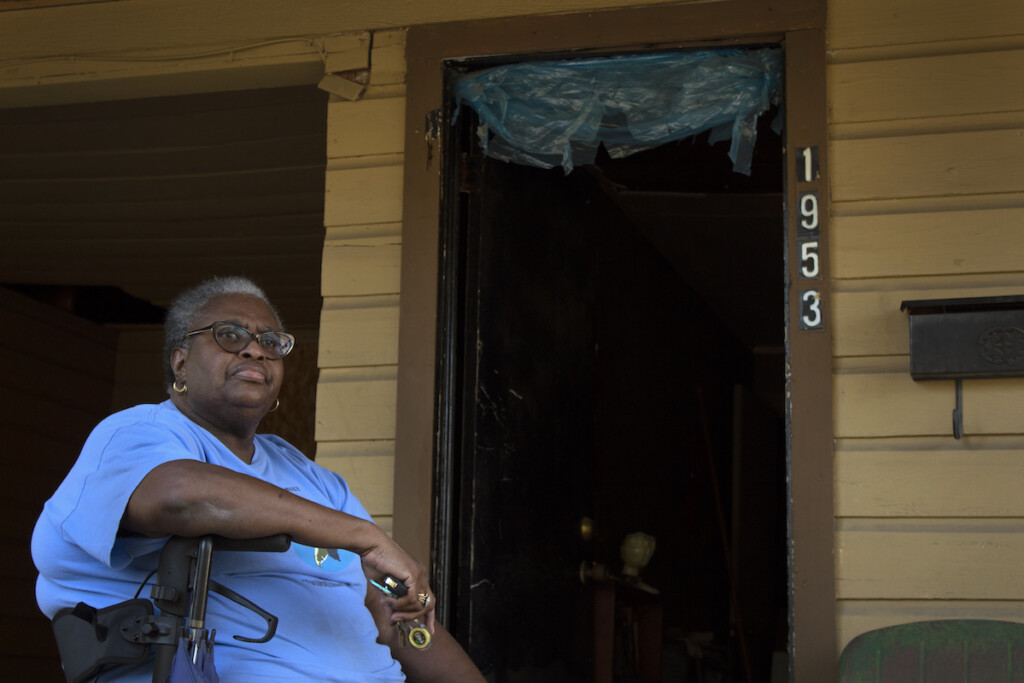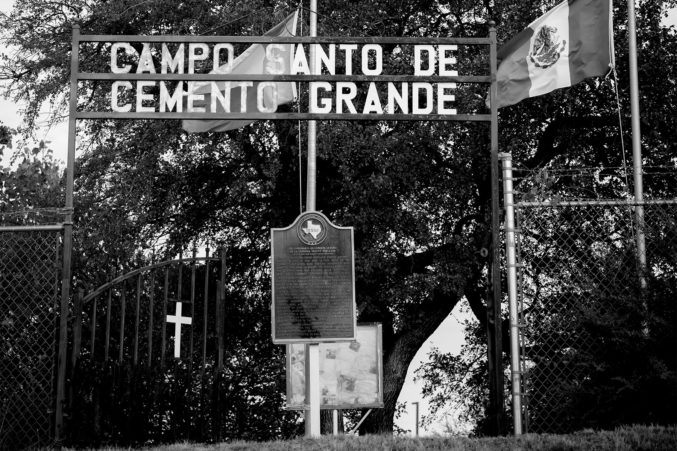Patsy Ruth Jackson struggled to hold back tears when she learned she might finally receive the home repairs she needs to move back into her West Dallas house.
The Dallas City Council voted last week to forgo the home insurance requirement for homeowners applying to the West Dallas Targeted Rehab Program, a city of Dallas neighborhood revitalization effort designed to provide financial assistance for home repairs. The city had rejected nearly half of program applicants, most of whom lacked home insurance and could not afford to pay for home repairs without help.
Jackson was among those who didn’t receive assistance because she didn’t have home insurance. She says insurance companies refused to insure her house because it was in such poor condition that it didn’t meet state requirements.
“There are so many people that need the help that couldn’t afford homeowners insurance,” Jackson says.
The West Dallas Targeted Rehab program was funded with $2 million in unused city bond dollars. It was conceived by the community, Dallas Deputy Mayor Pro Tem Omar Narvaez told his colleagues at their Housing and Homeless Solutions committee meeting, the day before the council voted.
“We allowed the constituents to decide what we were going to do with those dollars,” he said of the funds dedicated to West Dallas Census tracts. “The community created this home repair program.”
When it launched in December 2020, in addition to having insurance to qualify, homeowners needed to earn less than $79,900 a year, live in their home as a primary residence, have a clear title to the home, and not be behind on their property taxes or mortgage payments.
As of November 2022, nearly two years after the program launched, the city had committed about $800,000 of the $2 million to 90 applicants — a far cry from the 200 it had aimed to help by summer 2022.
Thor Erickson, assistant director of the City’s Housing and Neighborhood Revitalization department, said of the 76 applicants denied, about 60 were denied because they didn’t have home insurance.

The city will work to reach out to those 60 applicants at the beginning of the year, Erickson says. Depending on “where we end up after the first round of folks” who applied and could now be eligible, previous recipients who received up to $10,000 in repairs can re-apply for an additional $10,000 toward the new $20,000 cap, he says.
David Noguera, the city’s Housing and Neighborhood Revitalization director, said it was easy to lift the home insurance requirement. While some programs are tied to funding that requires homeowner’s insurance, such as the federally funded Home Improvement Preservation Program, the West Dallas program didn’t have any such guardrails.
“In this case, because the West Dallas Targeted Rehab Program is funded with old bond funds, we are eligible to remove the insurance requirement and be more inclusive to residents that would like to participate,” Noguera told the committee.
But Councilmember Cara Mendelsohn, of Far North Dallas, was not a fan of the idea. At the Housing and Homeless Solutions committee meeting, the day before the council voted, she told several of her council colleagues that even though old bond funds are paying for the repairs, it’s “still taxpayer money.”
“To not have insurance is to possibly invest it and literally see it go up in smoke,” she insisted. “This is the cost of home ownership.”
Narvaez countered by arguing that many who would qualify for the program simply could not find a company willing to insure their homes. Seniors in West Dallas living on fixed income don’t have the luxury of balancing the cost of paying a newly acquired premium for homeowners insurance while juggling everyday expenses, Jackson says.
“There’s a barrier for a lot of homeowners because of the disrepair of some of their homes,” Narvaez told the committee. Many homeowners also lost their insurance after damage from natural disasters like February 2021’s catastrophic Winter Storm Uri, he added.
“Many of them are hoping this will pass so they can get their home repaired, so they can get their home insured,” Narvaez said.
West Dallas resident Rayella Delley Boyd received West Dallas Targeted Home Rehab funds, and her insurance was due for renewal this month. But her annual premium coverage rate has increased to $1,789, about $500 more than her initial cost of $1,244. Boyd had to drop her insurance.
“Back in the day, my mom tried to get [homeowners insurance], but the only thing she said she could get at that time was the fire insurance. I’ve been keeping up payments on that,” Boyd says. The city eliminating the home insurance requirement “is a whole lot better for people that probably can’t afford no high rate insurance.”
“Most of my neighbors cannot afford insurance or cannot get insurance because their homes are so old,” West Dallas resident Debbie Solis told city council members before they voted at last week’s meeting. “It is something we need in our community, but the barrier is too great.”
Shortly after Solis’ public comments, the council voted to approve the revised requirements without any debate. City staff’s recommendations also increased the amount allotted per home from $10,000 to $20,000.
“The pandemic hit, and things got more expensive, and $10,000 just doesn’t go $10,000 worth of repair like it used to,” Narvaez said.
West Dallas residents can learn more about the West Dallas Targeted Rehab Program in this city of Dallas information sheet and FAQs, and can download an application here.
This article was reported and edited cooperatively by D Magazine and the Dallas Free Press, which both participate in the Dallas Media Collaborative, a group of local news outlets, universities and nonprofits focused on covering affordable housing with a solutions-oriented approach.
Author






